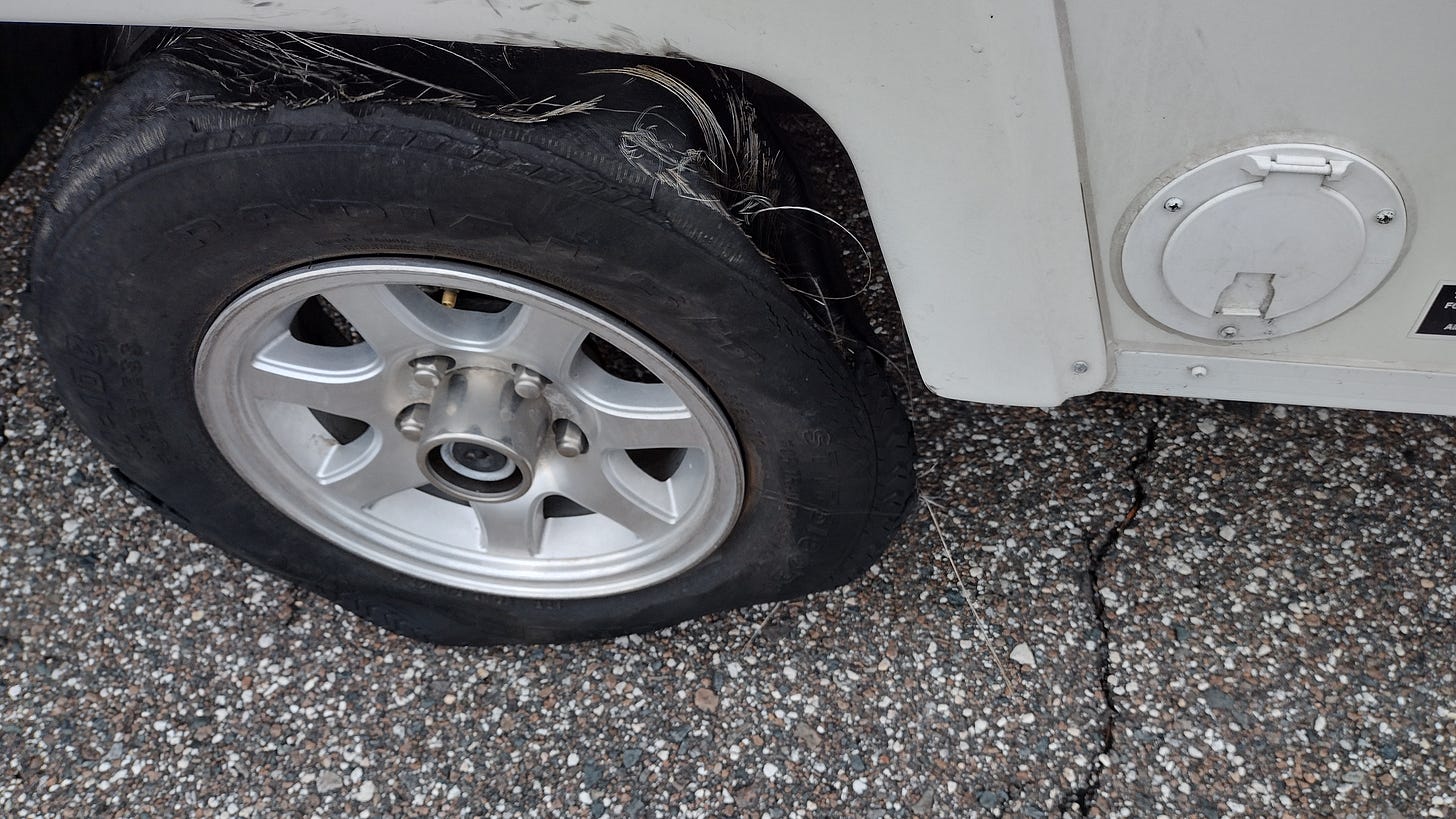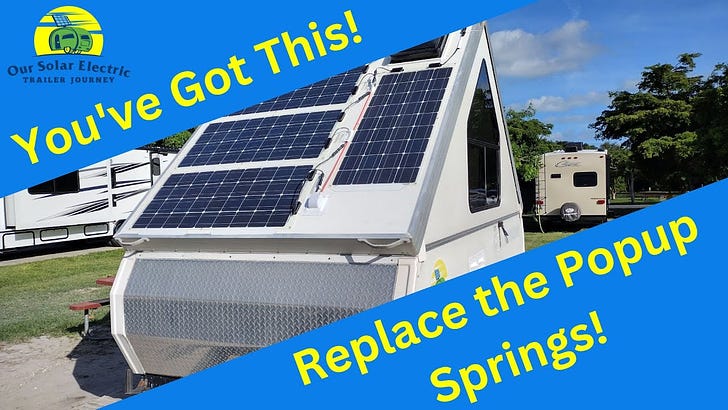When you purchase an item after clicking a link from this post, we may earn a commission.
Recently, we had an experience that will serve as a powerful object lesson for you. While traveling to southwestern Florida to help with recovery efforts following Hurricane Ian, a tire on our Aliner Scout blew out. We’ll not only share the surprisingly bad story but also some tips for avoiding this fate.
The Devastating Blowout
Devin made the trip alone to join a group of volunteers from our church helping people recover after the storm. About halfway, while passing through suburban Orlando, a passenger in a passing car signaled to Devin that something was wrong.
He pulled over to discover the driver’s side trailer had blown. There were few real challenges changing the tire and getting underway. Within an hour, Devin was back on the road.
He called Gail to report the problem noting, “It could have been much worse.”
Upon arriving in Port Charlotte where he “camped” in a church parking lot, he set up the trailer and discovered it was much worse.
It was a rainy day and there was water inside the trailer. The electrical system wouldn’t work at all to power anything. A quick investigation yielded the truth: The blowout did serious damage to the trailer, including large holes in the floor of the cabinet with almost all the electronics.
Everything inside the cabinet was wet; there was debris from the road and from the tire inside. It was a mess.
“I was despondent,” Devin said afterward.
The following day was dry. While Devin worked with the volunteers, the trailer sat in the warm sun drying out. That evening, Devin tried the electrical system and found it operational.
Looking back, Devin admits the first sign of trouble came an hour before the blowout. He picked up a vibration coming from the trailer that he correctly judged to be a problem with a tire. He stopped to check it out at a rest stop but couldn’t see a problem. Nervously, he proceeded—a choice he now regrets.
The trailer is currently out of service and awaiting repairs. It is difficult to get the necessary parts, like the replacement wheel well destroyed by the blowout. While insurance will cover some costs, new tires would have been much cheaper than our deductible.
How You Can Avoid the Same Fate
While there are no absolute guarantees you can avoid a blowout, there are three keys to avoiding one. Two are common knowledge but one we believe is important is rarely considered.
Tire Pressure. Always check the air pressure in the tires before every trip. We are diligent about this and confident that this wasn’t a factor in our little disaster. Improper air pressure is, however, the leading cause of blowouts—especially under inflation, which increases stress on the tire causing failure at freeway speeds.
Tread. When a tire is worn out from too many miles, easily seen in the tread, it is more vulnerable to blowing out. Our trailer is fairly old but had seen little use. The tread on the tires appeared virtually new. The tread itself was not the cause of our blowout.
Age. Our tires weren’t worn out, but they were old. For nearly a decade, they lived outside holding a trailer. They didn’t have many miles, but they’d lived too long in service. We considered replacing them but put it off, another decision we regret.
So keep in mind these three simple tips:
Always check the tire pressure.
Check the tread wear before every trip.
Replace the tires every 4 or 5 years even if treadwear doesn’t require it.
By following these simple steps you like (likely) avoid the sort of disaster we experienced.















Share this post